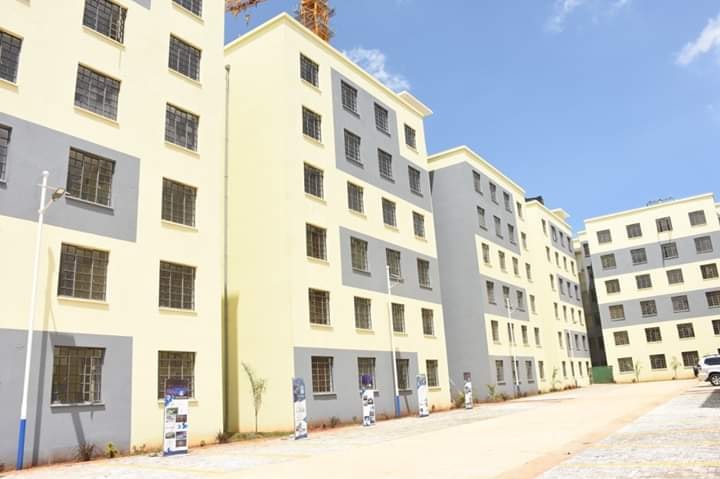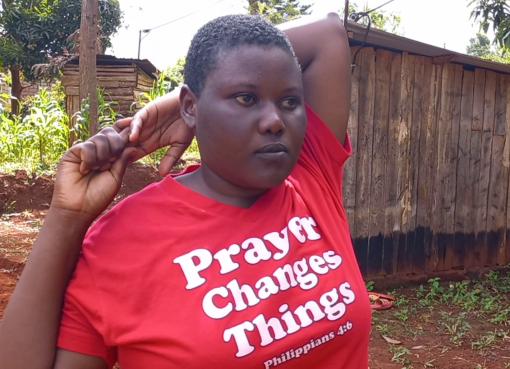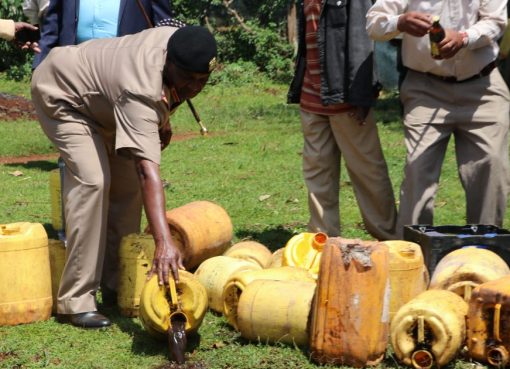Kenya Informal Settlements Improvement Project (KISIP) has launched a five-year National Slum Upgrading and Prevention Strategy for Slum Prevention to guide the rapid urbanisation taking place in various counties in the country, leading to the mushrooming of informal settlements.

The KISIP National Coordinator, Mr. George Arwa, said Kenya is urbanising very fast due to devolution initiated in the country 10 years ago.
“The urbanisation has been taking place around county headquarters as people migrate looking for greener pastures. This has in turn led to the bourgeoning of informal settlements around these urban centres owing to a shortage of decent housing,” Arwa noted.
Consequently, Arwa said, the National Government, through the State Department of Housing and Urban Development, launched the Affordable Housing Programme (AHP) as a solution to the proliferation of slums around urban areas in the country.
The KISIP coordinator was speaking in Naivasha on Wednesday during the launch of a five-year National Slum Upgrading and Prevention Strategy for slum prevention to guide the rapid urbanisation taking place in many counties in the country.
“As people flock into urban areas, informal settlements will mushroom, but the Affordable Housing Programme (AHP) will prevent these settlements and instead people will get decent housing,” Arwa said.
He explained that KISIP does not build houses but secures tenures for the people in slums by providing them with tittle-deeds so that the people`s interests are taken care of through these title-deeds, and this will give them confidence to support the slum upgrading programme.
“We have already given out 25,000 title deeds, and once this strategy is validated, a million people will benefit from the housing programme,” he said.
Arwa noted that KISIP is intended to upgrade informal settlements by designing a national strategy to look into ways of creating formal structures.
The National KISIP Coordinator revealed that the strategy will be cascaded and adopted by counties in order to address the issue of informal settlements where people live in degrading conditions.
So far, Arwa said, 33 counties are working with KISIP, but all counties will eventually benefit from the programme.
KISIP is co-funded to upgrade slums in urban areas by the World Bank and the Agence Française de Development (AFD) Bank of France.
The Housing Secretary in the State Department of Housing and Urban Development, Mr. Said Athman, welcomed this new strategy, saying it will hasten the slum upgrading process.
“Our plan focuses on social housing to improve livelihoods by providing affordable housing and to advance living conditions by providing decent housing,” Athman said.
He added that affordable housing projects for other groups of people will also be increased so that they can buy homes at an affordable price.
“For example, many people, like university students, especially those who finish their studies, will find better places to live,” the Housing Secretary said.
The strategy launched on Wednesday aims at operationalizing the slum upgrading and prevention policy (Sessional Paper No. 2 of 2016) with the intent of improving the quality of life for residents in Kenya’s slums.
If implemented, the strategy will provide a comprehensive framework for land use and development planning, provide appropriate security of tenure, improve infrastructure and social amenities, and facilitate the provision of adequate social housing.
It is a key Vision 2030 enabler project anchored in the government’s agenda of enabling residents in participating informal settlements within selected counties to benefit by having access to basic infrastructure services and land tenure security.
The Lands, Housing, and Urban Development Cabinet Secretary (CS), Mr. Zachariah Njeru, has been on record revealing that our country`s urban population growth has outstripped the development of urban housing and infrastructure, with a housing demand of 250,000 units annually against a supply of 50,000, mostly targeting the high-end market.
A recent study by the State Department for Housing and Urban Development identified 1,400 informal settlements in our country, and this number is growing. It also indicated that 65 per cent of Kenyans living in urban areas live in slums where they can’t access basic services and amenities, are prone to rising cases of violence and crime, and pay a premium price to access services such as water and electricity.
Thus, as an intervention to bridge the housing deficit, the government has this financial year set aside Sh35.2 billion in the budget for the AHP, and the president has signed into law the Finance Act 2023/24 that proposes a housing tax.
But this has been vehemently opposed by a section of employers and other stakeholders who claim this will overburden an already overstrained wananchi economically, and some have moved to court to oppose this new housing levy.
By Mabel Keya – Shikuku





